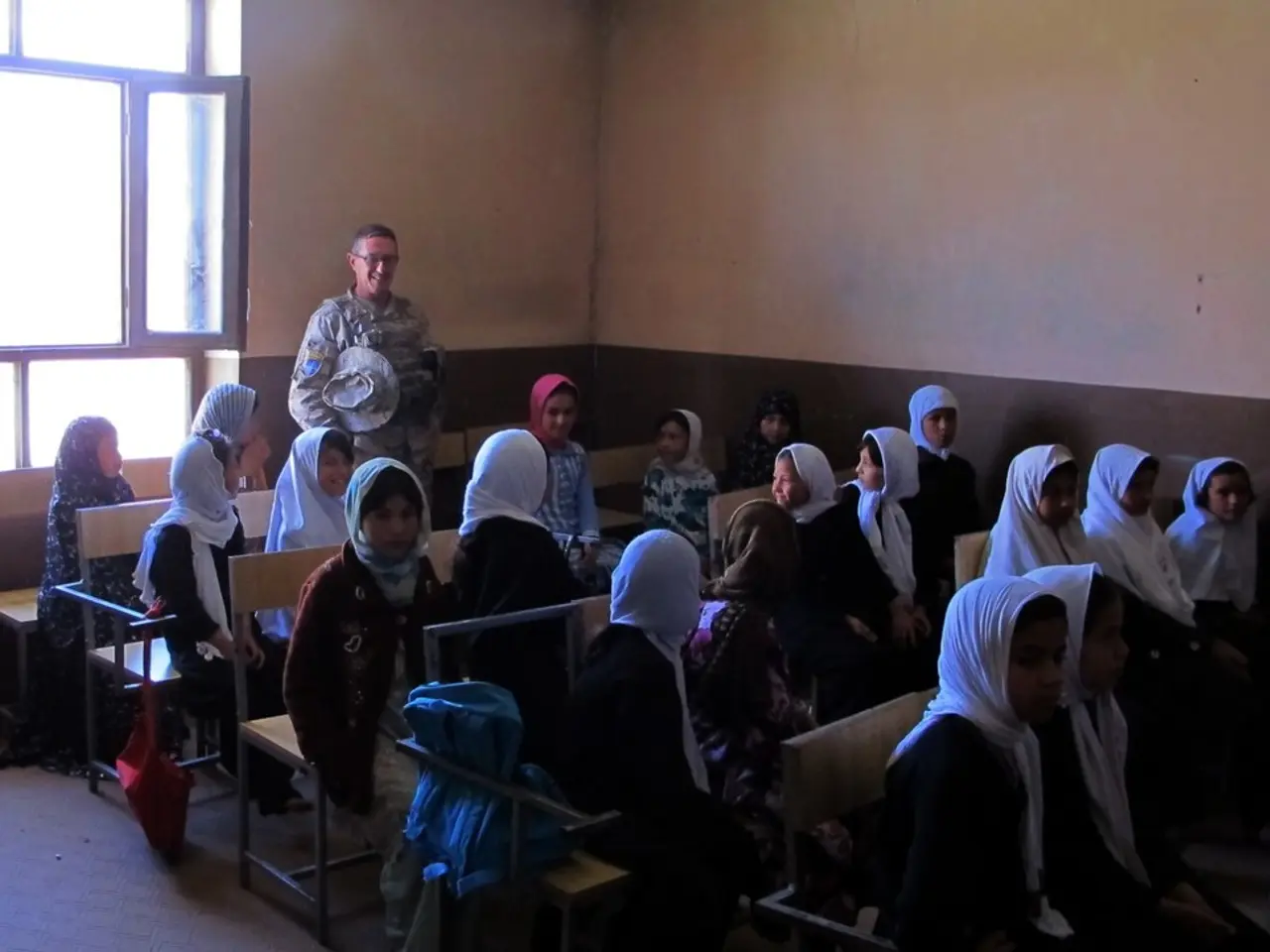Disrupted Education: Conservatives' Battle Against Higher Learning Institutions
In recent years, American universities have found themselves under attack, with conservative forces aiming to reshape these institutions of higher learning. This transformation, led by state governments and ideological initiatives, is significantly altering university governance, curriculum, and policies.
One of the primary concerns is the undermining of universities' commitment to evidence-based reasoning and the long-term public good. Ironically, while conservatives denounce public universities as radical leftist institutions, they simultaneously push for policies that defund them and open the door to privatization. Republican lawmakers have introduced or passed laws that ban or defund diversity, equity, and inclusion (DEI) programs, restrict tenure and academic freedom, impose "intellectual diversity" mandates, and limit or outlaw teaching on race, gender, and American history in ways that contradict critical race theory bans.
By cutting public funding and increasing reliance on corporate donors, universities become more susceptible to market forces and less committed to independent scholarship. This shift is not without consequences. The rise of cancel culture from the Right reveals that conservative critics are not against censorship, only against censorship that doesn't benefit them. The attack on universities is not about reforming education-it's about restructuring society to benefit the powerful and silence dissent.
In several states, Republican officials have intervened to replace university trustees with ideologically aligned appointees, reducing faculty influence and pressing changes in curriculum and hiring practices to align with conservative values. This extends beyond elite private institutions like Harvard to public universities across Indiana, Florida, Ohio, Texas, Iowa, and Idaho, signalling a nationwide conservative campaign reshaping higher education missions and priorities.
One of the most prominent figures in this campaign is Florida Governor Ron DeSantis, who has explicitly targeted public universities in his state for promoting "woke ideology" and DEI initiatives. The Right has cultivated an image of academia as the enemy of the people, a cultural battlefield where traditional America must fight for its survival. Especially vulnerable in this campaign are the humanities, fields like history, philosophy, literature, and gender studies, which conservatives frequently target as "useless" or ideologically subversive.
The long-term goal is not merely to silence liberal professors but to transform the university into a corporate training ground, reflecting a broader trend of neoliberalism in education. Conservatives have been portraying American universities as indoctrination factories and elitist enclaves. Their campaigns against universities resemble McCarthy-era purges, with groups like Campus Reform and Turning Point USA's "Professor Watchlist" encouraging students to report faculty with views deemed too "liberal."
In Florida, the "Stop WOKE Act" allows students to sue professors if they feel offended by classroom material discussing systemic racism or privilege. This portrayal intensified in the era of Donald Trump and beyond, with prominent Republicans, right-wing media outlets, and think tanks framing colleges as institutions that brainwash students with leftist ideology.
The impact on critical thinking, open inquiry, and democratic discourse is a subject of debate. Proponents argue these efforts correct perceived ideological biases and restore patriotic education; critics contend they undermine academic freedom, censor discussion of race and social justice, and diminish the plurality of perspectives essential for healthy democratic discourse. By restricting topics like critical race theory and reshaping curricula to exclude certain frameworks, these conservative drives risk narrowing the scope of debate and critical inquiry available to students.
In sum, conservative attempts to reshape American universities involve increased political oversight, curricular changes, and defunding of diversity programs, all of which significantly affect the environment for critical thinking, open inquiry, and democratic dialogue on campuses nationwide. This transformation, if left unchecked, could have far-reaching consequences for the future of education and democratic society in the United States.
[1] Goldstein, D. (2021). The Conservative War on Higher Education. The New York Review of Books. [2] Karp, R. (2021). The Right's War on Higher Education. The Nation. [3] Schneider, B. (2021). The Heritage Foundation's Project 2025: A Blueprint for a New Education Order. Education Week. [4] Apple, M. W. (2020). The Right's War on Academia: How Conservatives Disrupt Public Universities. Harvard Educational Review.
- The conservative push for changes in university governance and curriculum, as seen in states like Florida, Indiana, and Iowa, is not solely about academic reform; it's part of a broader mission to restructure society, silencing dissent and potentially narrowing the scope of critical inquiry and democratic dialogue.
- The debates over conservative intervention in higher education, as discussed in Goldstein's article in The New York Review of Books, Karp's piece in The Nation, Schneider's article in Education Week, and Apple's study in Harvard Educational Review, extend beyond the realm of education-and-self-development; they encompass politics and general-news, reflecting a cultural clash that impacts the future of democratic society in the United States.




